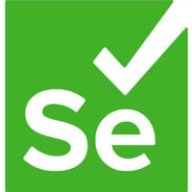

Selenium HQ and OpenText Functional Testing Lab for Mobile and Web are key players in the mobile and web application testing sector. Selenium HQ is favored for its cost-effectiveness and community support, while OpenText is preferred for its comprehensive features.
Features: Selenium HQ offers a flexible, open-source model with extensive browser integration and scripting language support. It supports remote execution through Selenium Grid and parallel testing, providing broader testing scope. OpenText, on the other hand, provides robust automation capabilities with advanced mobile testing and analytics tools, ensuring detailed test coverage and complex web application support.
Room for Improvement: Selenium HQ could enhance its user interface and ease of initial setup, which can be challenging for new users. It may also benefit from strengthening built-in analytics tools. OpenText could improve by refining its licensing model, as its high cost can be a deterrent. Additionally, simplifying its complex features and user interface could increase accessibility for new users.
Ease of Deployment and Customer Service: OpenText offers a thorough deployment model with comprehensive support options, allowing for smooth integration into various IT environments. Selenium HQ’s community-driven support model requires more effort in setup, though it offers significant customization benefits and is bolstered by strong community resources.
Pricing and ROI: Selenium HQ is a cost-effective open-source tool, offering high ROI for budget-conscious projects. Conversely, OpenText requires a higher initial investment, which may reduce short-term ROI but is justified by its rich feature set, offering value for companies seeking detailed testing capabilities.
| Product | Market Share (%) |
|---|---|
| Selenium HQ | 3.2% |
| OpenText Functional Testing Lab for Mobile and Web | 1.6% |
| Other | 95.2% |

| Company Size | Count |
|---|---|
| Small Business | 4 |
| Midsize Enterprise | 3 |
| Large Enterprise | 13 |
| Company Size | Count |
|---|---|
| Small Business | 41 |
| Midsize Enterprise | 33 |
| Large Enterprise | 51 |
OpenText Functional Testing Lab for Mobile and Web offers integration with HPE and non-HPE tools, real device testing, and device management. It supports real-time analytics and multi-platform testing, ensuring traceability and flexibility with decentralized devices.
OpenText Functional Testing Lab for Mobile and Web is designed to enhance testing efficiency for mobile and desktop applications by allowing ease of integration with different testing environments. It features real-time analytics, supports automated device management, and provides the flexibility of decentralized testing on real devices. With a focus on robust traceability, it stands out as a comprehensive choice for optimizing software development life cycles, especially notable for its ability to support multiple devices simultaneously and strategic scaling through network virtualization and AWS device farm.
What are the key features of OpenText Functional Testing Lab?Financial services companies utilize OpenText Functional Testing Lab for optimizing mobile solutions and applications, ensuring a streamlined integration into their Application Lifecycle Management and Unified Functional Testing processes. It aids in functional and performance testing, adapting to both on-premises and cloud deployments to suit industry-specific demands.
Selenium HQ is an umbrella project that includes a number of tools and frameworks that allow for web browser automation. In particular, Selenium offers a framework for the W3C WebDriver specification, a platform- and language-neutral coding interface that works with all of the main web browsers.
Selenium is a toolset for automating web browsers that uses the best methods available to remotely control browser instances and simulate a user's interaction with the browser. It enables users to mimic typical end-user actions, such as typing text into forms, choosing options from drop-down menus, checking boxes, and clicking links in documents. Additionally, it offers a wide range of other controls, including mouse movement, arbitrary JavaScript execution, and much more.
Although Selenium HQ is generally used for front-end website testing, it is also a browser user agent library. The interfaces are universal in their use, which enables composition with other libraries to serve your purpose.
The source code for Selenium is accessible under the Apache 2.0 license. The project is made possible by volunteers who have kindly committed hundreds of hours to the development and maintenance of the code.
Selenium HQ Tools
These three main Selenium HQ tools have powerful capabilities:
Reviews from Real Users
Selenium HQ stands out among its competitors for a number of reasons. Two major ones are its driver interface and its speed. PeerSpot users take note of the advantages of these features in their reviews:
Avijit B., an automation tester at a tech services company, writes of the solution, “The driver interface is really useful. When we implement the Selenium driver interface, we can easily navigate through all of the pages and sections of an app, including performing things like clicking, putting through SendKeys, scrolling down, tagging, and all the other actions we need to test for in an application.”
Another PeerSpot reviewer, a software engineer at a financial services firm, notes, “Selenium is the fastest tool compared to other competitors. It can run on any language, like Java, Python, C++, and .NET. So we can test any application on Selenium, whether it's mobile or desktop."
We monitor all Functional Testing Tools reviews to prevent fraudulent reviews and keep review quality high. We do not post reviews by company employees or direct competitors. We validate each review for authenticity via cross-reference with LinkedIn, and personal follow-up with the reviewer when necessary.